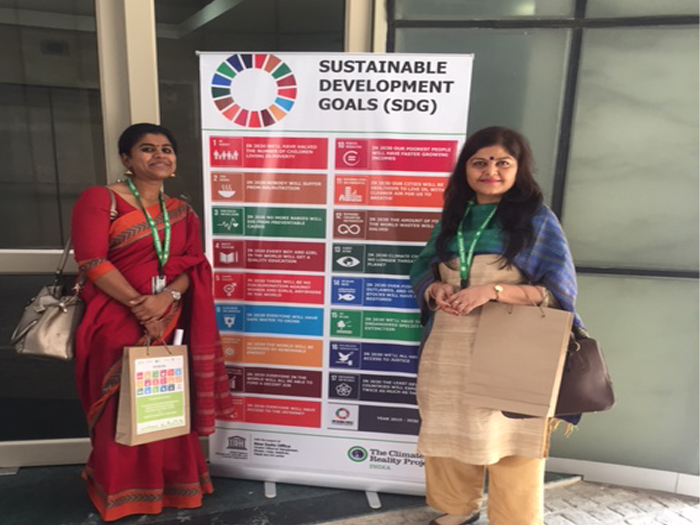UNESCO conclave on Role of education in teaching Sustainable Development Goals and Climate Change.
On 17th February 2017, UNESCO conducted a conclave for principals on Teaching Sustainable Development Goals and Climate Change Education in its premise.
The Climate Reality Project was founded by former U.S Vice President and Nobel Laureate, Al Gore, in 2006. His mission is to educate the common public about the harmful effects of climate change and to work toward solutions at a grassroots' level, worldwide. The aim of the workshop was to sensitise heads of educational institutions about the relevance of teaching SDGs and climate change. Once leadership of the mission develops in schools, the desired change will begin to be sighted.
[gallery link="file"]
The session commenced with a welcome address by Mr. Shiregu Aoyagi, Director UNESCO, on the endeavours to make education systems not only responsive to but also prepare teachers and children for the current and emerging challenges. It is essential to empower teachers and the youth to make informed decisions as citizens, stakeholders and consumers. Dr. Ram Boojh, Programme Officer for Ecological Sciences, UNESCO New Delhi, talked about the impact of Climate Change on food, water, bio-diversity and health, which are hindering the development of living beings. In this time of crisis, educational institutes can help overcome the problems by identifying innovative ideas /steps that can foster education for sustainable development in schools.
The conference concluded with principals and teachers discussing the initiatives taken in their schools/ colleges to promote sustainable development through media such as installing solar plants, rain water harvesting systems, compost pits, garbage disposable systems and many more.
It was indeed an enriching session which turned out to be an eye-opener for many of us with regard to the exploitation of resources by human beings. In this context, a quote of Charles Darwin seems most relevant-
It is not the strongest of the species that survives, nor the most intelligent, but the one most responsive to change.
Ms. Ekta Bidhuri.













